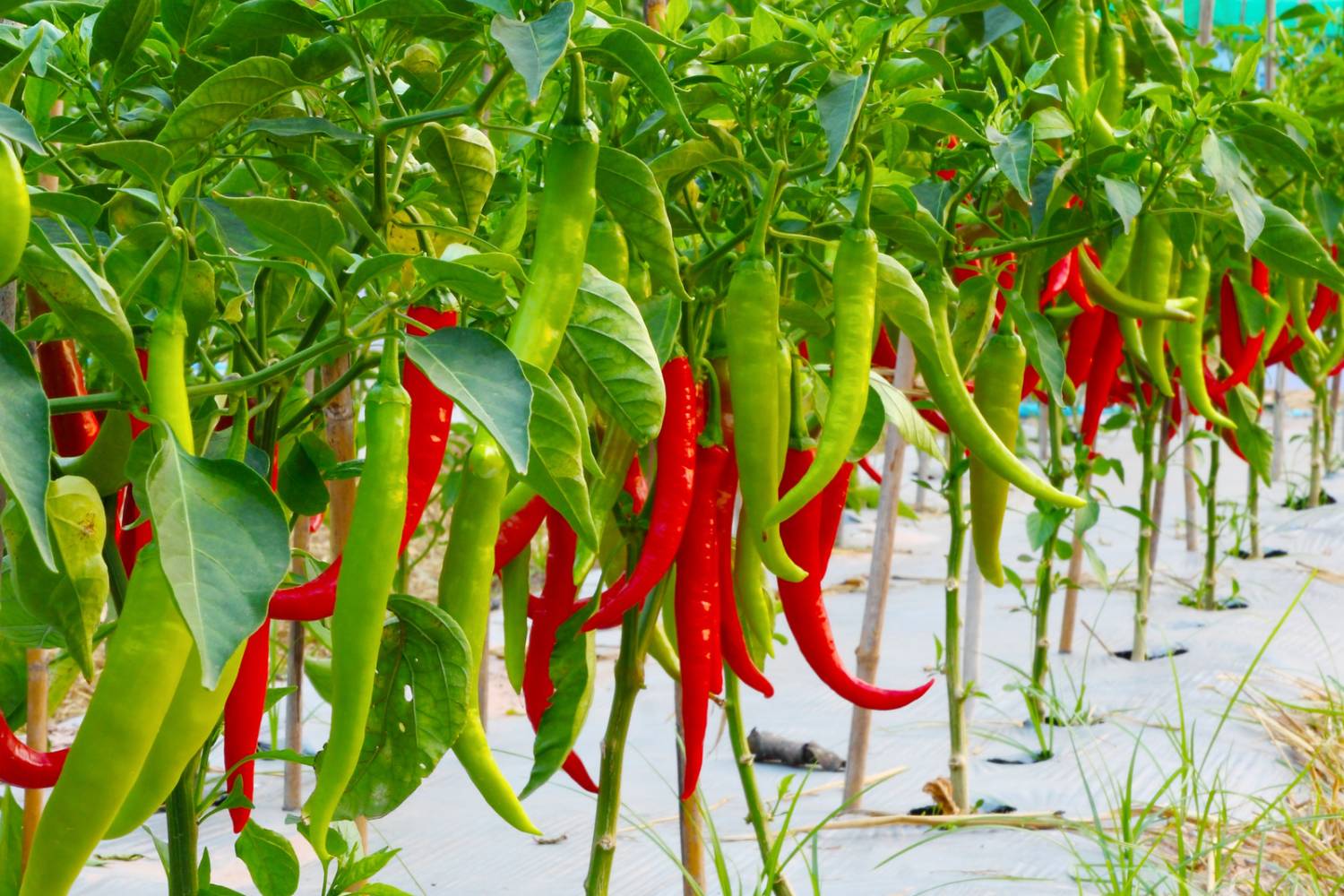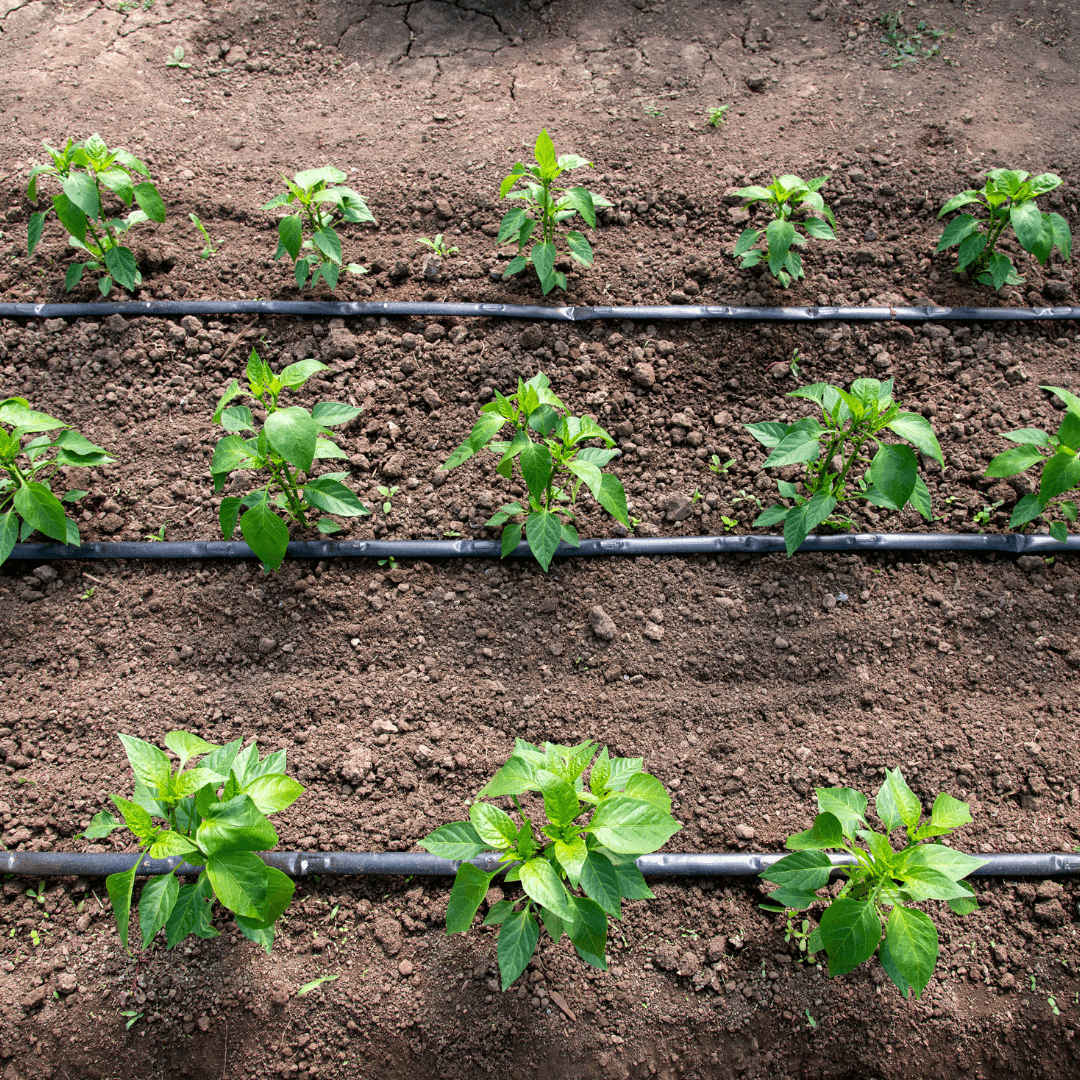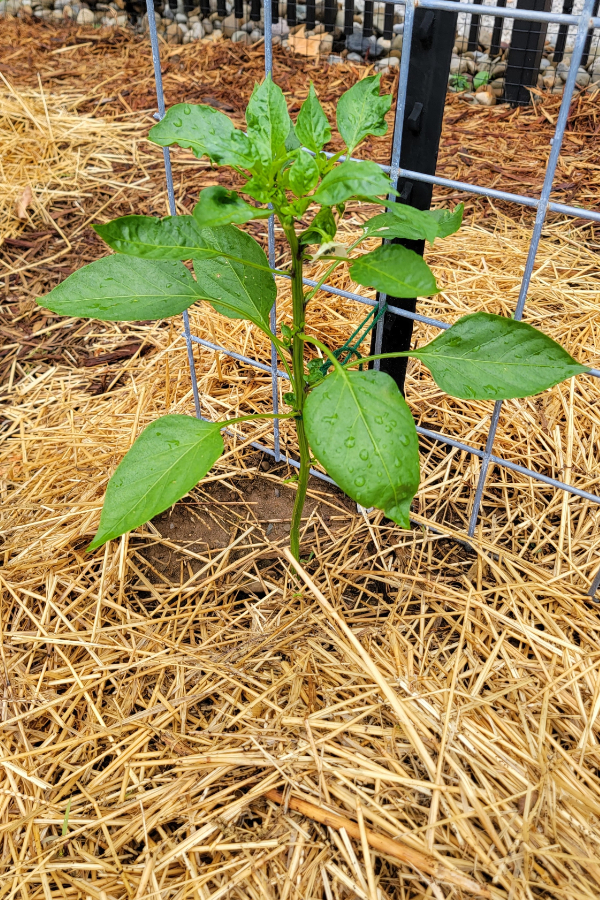Best Fertilizers for Peppers: Make The Most Of Plant Health and Return
Best Fertilizers for Peppers: Make The Most Of Plant Health and Return
Blog Article
Just How Plant Foods Play an Important Role in Growing Healthy and Plentiful Pepper Crops
Fertilizers offer as the backbone of successful pepper farming, providing a strategic strategy to nurturing the dirt and cultivating ideal plant growth. The elaborate dancing between important nutrients and the pepper plants' physiological processes underscores the essential duty that fertilizers play in guaranteeing an abundant harvest.
Relevance of Nutrient-Rich Fertilizers
The application of nutrient-rich plant foods plays a crucial role in improving the performance and high quality of pepper crops in modern-day farming methods. Phosphorus, nitrogen, and potassium are key nutrients that are crucial for the growth and development of pepper plants.
Insufficient degrees of these nutrients can result in stunted growth, minimized returns, and vulnerability to diseases (best fertilizers for peppers). Nutrient-rich fertilizers offer a targeted service to make certain that pepper plants obtain the needed aspects for ideal growth and performance. Furthermore, these plant foods aid boost soil fertility over time, creating a lasting setting for lasting pepper growing
Enhancing Plant Development and Growth
To optimize plant development and development in pepper crops, strategic application of nutrient-rich plant foods is vital. Plant foods play an important role in enhancing the overall health and wellness and performance of pepper plants by offering them with essential nutrients that might be lacking in the soil. Potassium, nitrogen, and phosphorus are primary macronutrients called for in large quantities by peppers for robust growth. Nitrogen aids in leafed green growth and overall plant vitality, phosphorus supports root growth and flower formation, while potassium adds to condition resistance and fruit top quality.
In addition to these macronutrients, trace elements such as iron, magnesium, and zinc are likewise crucial for the correct performance of different plant procedures. Iron, for example, is necessary for chlorophyll production, which is important for photosynthesis and general plant growth. Zinc plays a crucial duty in enzyme task and hormone synthesis, affecting plant development and development at a mobile degree. Magnesium is vital for the formation of chlorophyll and total energy transfer within the plant.

Boosting Illness Resistance With Fertilizers
By tactically including targeted fertilizers, farmers can boost the illness resistance of pepper crops, making sure optimal plant health and performance. Fertilizers having crucial nutrients like phosphorus, potassium, and nitrogen play a critical function in enhancing pepper plants' body immune systems, making them much more durable to numerous diseases. Nitrogen, as an example, help in the production of healthy proteins that are crucial for plant defense reaction. Phosphorus adds to root advancement, making it possible for plants to much better soak up nutrients and water, hence improving their ability to repel illness. Potassium manages procedures that boost general plant wellness, making peppers more robust against microorganisms.

Taking Full Advantage Of Pepper Return Via Fertilizing
Using a balanced fertilization strategy is essential to achieving maximum pepper return and making certain ideal plant efficiency. By providing peppers with the best nutrients at the ideal time, farmers can significantly enhance their yield possibility. Potassium, phosphorus, and nitrogen are crucial aspects for pepper development, with nitrogen assisting in fallen leave and stem growth, phosphorus sustaining root development and flower formation, and potassium promoting general plant wellness.
To maximize pepper yield, it is vital to conduct dirt tests to establish existing nutrition levels and recognize any type of shortages that need to be resolved. Based upon these results, farmers can develop a tailored fertilization strategy that meets the particular demands of their pepper plants. Additionally, appropriate fertilizing strategies such as split applications throughout the expanding season can guarantee continuous nutrition schedule for the plants.

Lasting Fertilizer Practices for Peppers
In taking into consideration lasting plant food methods for peppers, it is imperative to focus on long-lasting dirt health and wellness and environmental stewardship in combination with taking full advantage of crop efficiency. Lasting fertilizer techniques intend to enhance or keep dirt fertility while decreasing unfavorable environmental influences. One crucial approach is the usage of natural fertilizers such as garden compost, manure, or cover crops, which not just supply necessary nutrients to the peppers yet also add to soil structure and microbial activity. These organic choices assist build organic issue in the soil, enhancing its capacity to retain water and nutrients, consequently supporting long-lasting plant wellness and strength.
In addition, precision farming techniques, such as dirt screening and targeted nutrient applications, can assist enhance fertilizer use, guaranteeing that peppers obtain the nutrients they require without excess drainage right into waterways. This not just benefits the atmosphere by lowering air pollution yet also conserves prices for farmers by reducing waste. By taking on sustainable fertilizer methods, pepper growers can safeguard the health of their crops, dirt, and surrounding ecosystems for future generations.
Final Thought
To conclude, fertilizers go to website are necessary for cultivating bountiful and healthy pepper plants. best fertilizers for peppers. They provide essential nutrients for plant growth and advancement, increase disease resistance, and make the most of return. By executing lasting plant food practices, farmers can make certain the long-lasting Get the facts health and wellness of their pepper plants and add to a much more environmentally-friendly and reliable farming system
The detailed dancing in between important nutrients and the pepper plants' physiological processes underscores the pivotal duty that fertilizers play in guaranteeing a plentiful harvest.To maximize plant growth and advancement in pepper plants, strategic application of nutrient-rich plant foods is essential. Fertilizers play a crucial duty in boosting the overall health and productivity of pepper plants by giving them with crucial nutrients that might be lacking in the dirt.By tactically incorporating targeted plant foods, farmers can strengthen the illness resistance of pepper crops, ensuring ideal plant wellness and efficiency. Fertilizers having crucial nutrients like potassium, phosphorus, and nitrogen play a vital role in strengthening pepper plants' immune systems, making them a lot more durable to different conditions.
Report this page